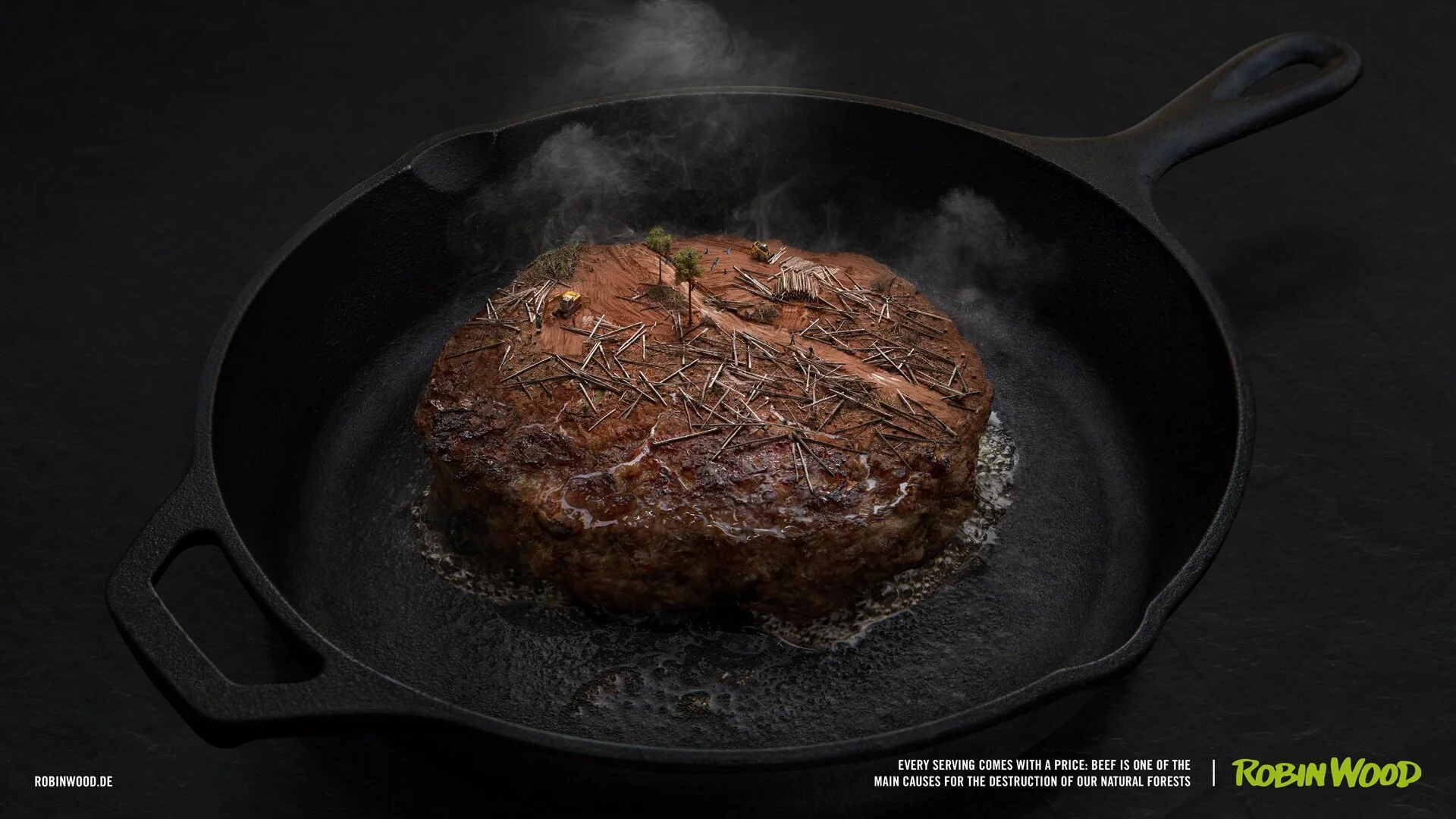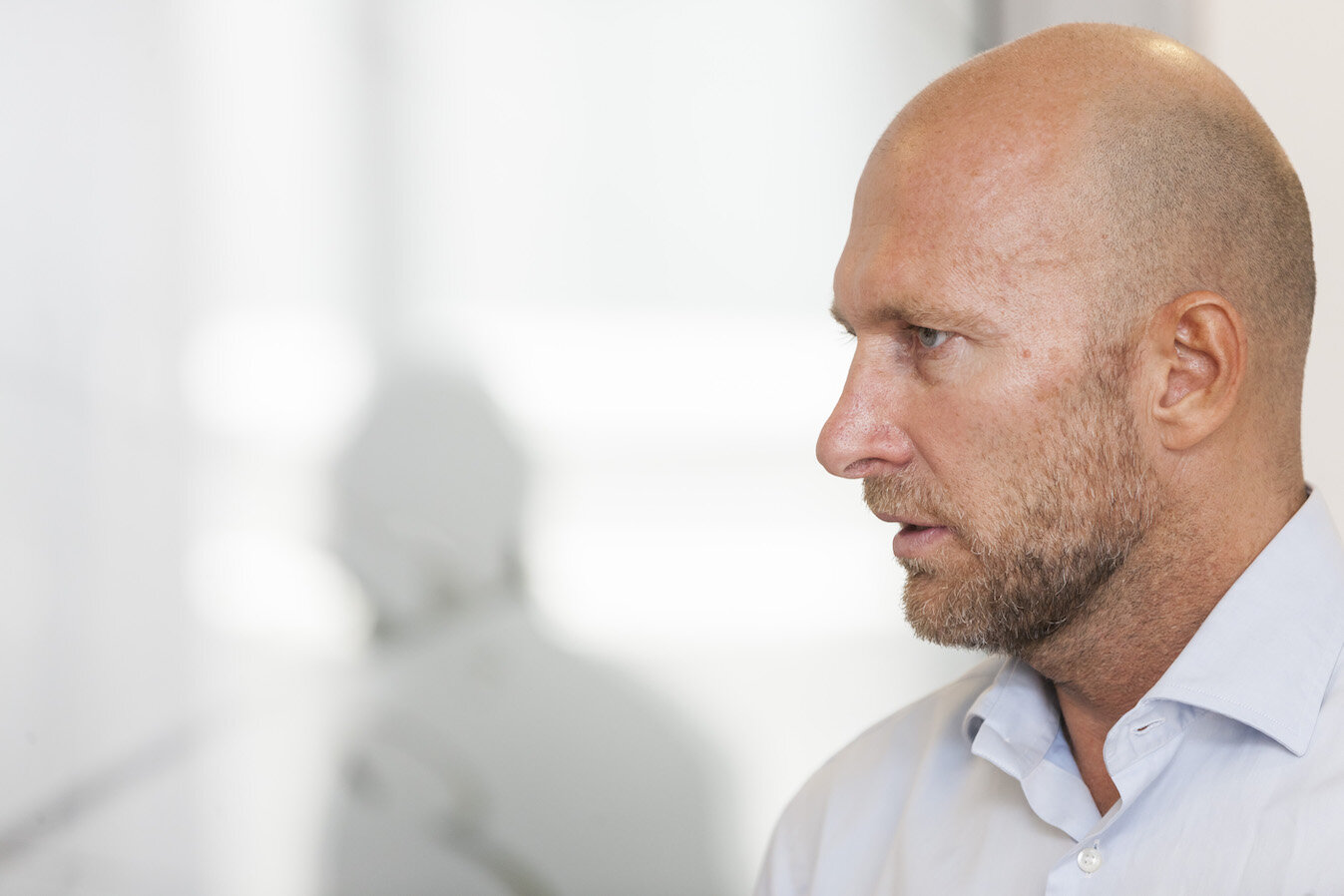The making of ÜberCreativity
When is a network not a network? When it is a House of Communication.
“Human nature has a strong need for the notion of new and to encounter surprise.” Matthias Harbeck, Partner and CCO Germany, Serviceplan.
If you were going to celebrate a key anniversary for your business, you might choose to avoid this lockdown year.
Particularly if the enterprise is distinguished by its unique take on close physical collaboration.
However, that’s the situation Serviceplan Group finds itself in. It is 50 years since the agency started, quite a milestone to reach as an independent in the fast-moving and often merging advertising world. It also marks 20 years of the ‘House of Communication’ concept, the branding under which its multi-disciplinary cluster of specialist companies operates as both separate business units and yet are working intensely together in bespoke teams of expertise.
It all started back in Germany in 1970 when Dr. Peter Haller and Rolf O. Stempel looked to set up an agency with a difference.They developed a service to clients that meant the whole marketing plan could be delivered through one organisation, often working in one place and yet within and across independently managed teams. Serviceplan is a name that does what it says. Now that idea has led to the creation of a company that is in 24 countries, with 4300 employees worldwide.
What hasn’t changed is that the organisation is owner-run and that a Haller – Peter’s son Florian – is at the head as CEO. He leads a large group of partners who all have stakes in the business. Or, more correctly, businesses. For the Serviceplan Group, while avoiding the word network, has grown its own rich biome of interacting living parts. The more traditional agency that came first in 1970 was rapidly augmented by a media company (Mediaplus), a market research business (Facit) and the digital agency (Plan.Net). There is also Solutions, a marketing asset development unit, and the strategic consulting arm, simply called Consulting. The result is that the major offices can deliver a House of Communication, a culture of entrepreneurial parts that can win a great deal of business and many awards in their own right, but also collaborate in multiple ways as opportunities arise.
The Serviceplan Group became the first winners of Cresta’s Independent Network of The Year in the last Cresta Awards. As a result, we wanted to find out what lay behind the achievement (as well as wanting to deliver the multiple awards won in person). We visited the original House of Communication, and the largest base, in Munich. Very much pre-lockdown of course. There the Partner and CCO Germany Matthias Harbeck took delivery of a haul of Cresta trophies, led chiefly by the standout work being done on Dot Mini, part of a sequence of innovative projects that Serviceplan has created with Dot Inc., a South Korean startup producing radical new tools to aid the visually impaired. The products, their branding and marketing, are developed in intensely full collaborative arrangement between client and agency, as this film explores.
“ÜberCreativity is our term for how we work together,” explains Harbeck. “Über here does not mean we are very creative – of course we are! Über here means beyond the normal way of creative working. ÜberCreativity is a higher form of innovation. It means for us collaboration and interplay between diverse disciplines, , cultures and talents. Digital with media with conceptual skills, bringing together the best possible in collaboration. Dot is a collaboration between Serviceplan Germany, Serviceplan South Korea and Plan.Net. It was born with a collaboration between the startup and Serviceplan Germany and then we worked with Plan.Net as technology specialists within our group.”
This may seem like the fulfilment of the 50 year journey for the group but is more indicative of a culture that has been growing all along. It’s in the DNA and is apparent in many ways: for example, the deep commitment to supporting and engaging with the arts has come from the heart of the company since the start. Dr Haller acquired artworks when he could as part of what Serviceplan did, as business and relationships grew. Long-term commitment in this way has led to the creation of a fantastic art collection. You can find yourself between an Anselm Kiefer on one wall facing a Georg Baselitz on the other in the Munich office, both just off the staff canteen for all to see. There are 250 or so works in the Serviceplan art collection and visitors can sign up for regular tours.
Serviceplan’s philosophy and delivery has generated a form of complex teamwork that is very much its own. In spirit, the closest echo we might find is in something like the partner structure that exists in the multinational design group Pentagram – itself a child of the 1970s, still independent and partner-owned and run. But there are big differences. The Serviceplan Group operating at a different scale, for one (growing to €442 million euro in fee income in the financial year 2018/19).
The group has made complexity work clearly, if not simply. There is clarity in how the ‘House of Communication’ delivers complex innovation and why an owner-managed structure can give strength and flexibility. And this delivers growth and stability alongside variation. But how does the client get the best out of this?
“The good thing for the client is that they get the best of all the disciplines but they don’t have to talk to a hundred people,” says Harbeck. “We try to identify one person, one agency, to work closely with the client but not require the client to be in every collaborative talk.”
Not all work has to be complicated or radically new technology, of course. Dot Inc. projects are amazing but the agency is also happy to produce a poster, or something else apparently ‘traditional’, if that’s what is needed. Below is one of the strong images that are running in print and OOH, with extensive social media, in a campaign for the German environmental organisation Robin Wood that raises awareness of ongoing rainforest destruction.
And yet even behind an apparently traditional output such as the Made In Fukushima book (see film below), made from handcrafted rice paper, the solution is in fact a highly innovative way, built from multi-disciplinary insights, to communicate and demonstrate powerful data that shows the safety of farming and products coming from the radioactive zone around Fukushima.
It is clear the direction of travel tends to be towards more innovative teamwork. Harbeck, and Serviceplan, have thought long and hard on this. “There are some more single-minded assignments within the agencies. And this goes on day-to-day within our agencies. But tasks are getting more and more complex.
“It’s a big thing to explain. In the old days you had a tv spot, poster, ad campaign. Then digital came. People did banners and did nothing more than using the channel like a poster campaign but different media. Now it is much more complex with the different channels and the customer journey much more complex.
“What happens in a day? You get up and look at your phone, listen to the radio on way to work maybe, look at your desktop at work, get lots of different kinds of messages. In which situation are you talking to who about what? How do you avoid boring the audience, how do you bring messages that engage and develop the brand? To craft such an architecture is what we must do. We have to work with the media, technology, and the campaigning.
“Brand-building is very important in this: The Adidas’ Global Media Director said the focus was too much on performance marketing, too much on short-term. Our job is to do that but at same time balance with good brand-building. It is a challenge that changes every day and we must adapt to it. After the years of performance marketing we are seeing stronger concerns about brand-building but we must continue to balance the two.”
The pandemic may have thrown much marketing off-course since Harbeck set that explanation out for us. However, it doesn’t change any of the fundamental direction of travel. Indeed, the move to digital and the need for brands to evolve rapidly to be meaningful in new times strongly bears out the Serviceplan vision.
This may not have been the ideal year for celebrating a big anniversary but The Serviceplan Group is clearly working longer-term. The next 50 years will be worth watching out for too.















